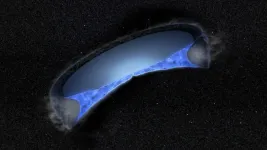The research initiative aims to inspire bold new ideas that have the greatest potential for advancing cancer research and improving outcomes for people affected by cancer. The new round of challenges, announced March 8, 2023, during the Cancer Grand Challenges Annual Scientific Summit in London, is open until June 22, 2023.
“This partnership with Cancer Research UK underscores our commitment to support the brightest minds across the global research community as they tackle some of the most complex challenges in cancer research,” said Monica M. Bertagnolli, M.D., director of NCI. “We look forward to the compelling research ideas that emerge from this new set of challenges.”
International, interdisciplinary teams are invited to submit their approaches to address one of the nine challenges. In 2024, up to four winning teams will be awarded about $25 million each over five years to complete their research.
“These challenges are exciting opportunities to accelerate the pace of cancer science, and we invite teams to propose creative and novel approaches to tackle these challenges,” said Dinah S. Singer, Ph.D., NCI deputy director for scientific strategy and development. “By stimulating bold and interdisciplinary research led by diverse teams, we hope to improve outcomes and provide more options for the millions affected by cancer in the United States, the United Kingdom, and around the globe.”
In 2022, the Cancer Grand Challenges program awarded $100 million to four interdisciplinary teams. These teams are focused on:
the study of a muscle-wasting condition in cancer patients known as cachexia the biology of extrachromosomal DNA in cancer new immunotherapies for solid tumors in children the triggers that cause normal cells harboring cancer-causing mutations to become tumor cells In prior years, seven other interdisciplinary projects were also funded through earlier rounds of the Cancer Grand Challenges.
“Cancer is a major global problem that requires global collaboration. Cancer Grand Challenges provides an unparalleled opportunity for the world’s scientific community to come together and make change,” said David Scott, Ph.D., director of Cancer Grand Challenges, Cancer Research UK. “Our initiative inspires new thinking—bringing together world-class, multidisciplinary teams to find bold, new solutions to cancer’s most complex problems. These are an ambitious set of challenges, but with investment at this scale, we can drive the progress against cancer that the world urgently needs.”
The nine new challenges are as follows:
Solid tumors in children: Develop therapeutics to target oncogenic drivers of solid tumors in children This challenge seeks to identify new therapies that target drivers of solid tumors in children, to improve survival and reduce the lifelong side effects caused by existing treatments. Cancer inequities: Understand the mechanisms through which genetics, biology, and social determinants affect cancer risk and outcomes in diverse populations, to motivate interventions to reduce cancer inequities This challenge seeks to understand the relative contributions of genetics, biology, and social drivers on cancer causes to provide foundational knowledge that could be used to develop novel approaches to reduce cancer inequities and disparities. Obesity, physical activity, and cancer: Determine the mechanisms through which obesity and physical activity influence cancer risk This challenge seeks to understand the biological processes by which obesity and physical activity impact cancer risk to better inform the development of interventions to alter risk. Aging and cancer: Decipher the functional basis underlying the association between aging somatic tissues and cancer This challenge seeks to understand how the molecular changes associated with aging contribute to cancer risk in different organs. This knowledge could be used to develop new targeted interventions to lower cancer risk in aging populations. T-cell receptors: Decipher the T-cell receptor cancer-recognition code This challenge aims to improve our understanding of how T cells, a type of immune cell, recognize cancer cells, to improve and broaden the success of cancer immunotherapies. Early-onset cancers: Determine why the incidence of early-onset cancers in adults is rising globally This challenge aims to understand the mechanisms underpinning the biological and environmental factors behind the rise in early-onset cancers, diagnosed in adults under 50 years of age, so that this knowledge can be used to ultimately develop interventions to protect populations at risk. Cancer cell plasticity: Understand cancer cell plasticity and its contribution to the development of pan-therapeutic resistance in cancer This challenge seeks to expand our understanding of how cancer cells can change their identity by adopting the characteristics of different cells, which can contribute to cancer progression and therapy resistance, and how this could be regulated to improve the effectiveness of cancer therapies. Retrotransposable elements: Understand the roles of retrotransposable elements in cancer This challenge seeks to understand how retrotransposable elements (parts of our DNA that come from viruses that infected us millions of years ago and can jump to different locations in our DNA) contribute to the development and progression of certain types of cancers. Chemotherapy-induced neurotoxicities: Understand and prevent chemotherapy-induced neurotoxicity and neuropathy This challenge seeks to better understand how some chemotherapies cause particular side effects, such as long-term damage to the nervous system, ultimately to better inform approaches to prevent and treat these to improve patients’ quality of life. These nine challenges were chosen from more than 300 ideas generated through international workshops and open invitations for ideas from the cancer research community and people affected by cancer. Of these, the most compelling ideas were evaluated by experts in cancer research. The experts provided their recommendations to Cancer Research UK. As funding partners, NCI and Cancer Research UK made the final selections for the Cancer Grand Challenges.
Interested teams should submit an expression of interest by June 22, 2023. The Cancer Grand Challenges’ scientific committee will review and recommend a list of finalists to Cancer Research UK. Following this recommendation, NCI and Cancer Research UK will make the final determinations of short-listed teams, which will be announced in August 2023. In March 2024, NCI and Cancer Research UK expect to announce the selection of up to four winning teams.
For more information about the Cancer Grand Challenges program, visit https://cancergrandchallenges.org/.
###
About the National Cancer Institute (NCI): NCI leads the National Cancer Program and NIH’s efforts to dramatically reduce the prevalence of cancer and improve the lives of cancer patients and their families, through research into prevention and cancer biology, the development of new interventions, and the training and mentoring of new researchers. For more information about cancer, please visit the NCI website at cancer.gov or call NCI’s contact center, the Cancer Information Service, at 1-800-4-CANCER (1-800-422-6237).
About the National Institutes of Health (NIH): NIH, the nation's medical research agency, includes 27 Institutes and Centers and is a component of the U.S. Department of Health and Human Services. NIH is the primary federal agency conducting and supporting basic, clinical, and translational medical research, and is investigating the causes, treatments, and cures for both common and rare diseases. For more information about NIH and its programs, visit nih.gov.
END


